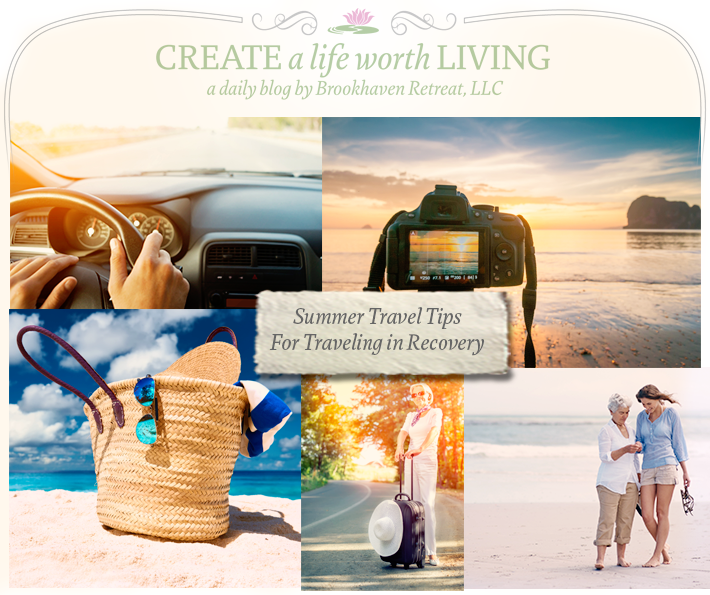
Growing up in a home with mental illness and substance abuse was very challenging. It was difficult to know which way any given day would go and many afternoons were spent scrambling to change plans after a small incident turned into a major issue. Travel, before mental illness and addiction touched my family, had seemed ridiculously effortless. My father would drive and my mother would manage the necessities of the trip from the passenger’s seat while we children were left to entertain ourselves as best we could in the back seat before electronic entertainment was available. We would play games with each other involving scenery and other cars on the road. We would take turns riding in the back window. Most absurdly, we would even default to seeing who could ride upside down in the seat for the longest. Those were great times.
After my mother suffered her first mental health related episode, things changed. As she progressed to alcohol and drug dependency, our family trips became all but non-existent. As a child, it was difficult to understand what had changed but that understanding developed over the course of growing up. By the time I was twenty, I had learned a lot about dealing with mental illness, alcoholism, and drug dependency. Finally I was old enough to provide more than emotional support for my mother and together, we overcame her addiction. My mother was still struggling with mental illness but she was on the road to recovery. To celebrate, we planned a mother-daughter trip and let me tell you, that was definitely a learning experience.
Our first successful decision came in deciding to plan ahead because, had we not planned ahead, that trip would never have happened. We learned a lot during that trip and built upon that knowledge to successfully plan several more trips before my mother passed away. I will treasure those trips with her until I draw my last breath. While travel was complicated, the joy we found and the memories we created made the planning process worth it. Below are the things I learned about traveling with a loved one in recovery.
- Be prepared. Having a Plan A is not enough. My mother was fond of saying you need a Plan A, B, and E.C.T. as you never knew what would happen. We may have been guilty of over planning but we were never caught completely off guard. We made a checklist weeks in advance and spent the rest of the time adding items or actions to the list on a daily basis as we encountered new life situations or learned how best to handle them.
- Consider traveling with a safe, supportive companion. Individual travel can be very satisfying but early in the recovery process or when dealing with specific mental health issues, it is safer to travel with a companion who knows your limitations and how to assist you if issues arise.
- Buy additional medical insurance as well as trip insurance for peace of mind. Don’t let the anxiety of encountering a travel issues or a simple medical event destroy the positive anticipation taking a trip can bring. While medical insurance may not cover pre-existing conditions, it makes dealing with small medical issues much easier and less stressful. Travel insurance is a no-brainer. If you have to cancel for emotional challenges at least you can limit your losses.
- Ensure that you pack all medications in adequate quantities to last for the entire trip. Also include a letter from the doctor regarding medications and dosages to speed dealings with the TSA and/or customs. With my mother, we would also photograph each medication beside the identifying label to make them more easily identifiable by workers. We could probably done less but it never hurts to over prepare.
- Know the triggers and try to avoid them. As I said, my mother was a recovering alcoholic. You can image our surprise the first time we checked into a hotel in the middle of the Manager’s Greeting where free alcoholic beverages were served to all guests. After that, we were careful to request additional information on facilities and amenities when booking our rooms.
- Have the tools on hand you need to deal with incidents that arise during your travel. My mother always carried her spirit bear keychain with her. She used it as a focus object or totem when she was stressed and/or tempted to imbibe. It was an object that held personal meaning for her recovery but would be unlikely to be taken or seized during travel.
- Seek support at your destination. During the planning phase, contact support groups in the area you are visiting. Open a dialog with them so that if you find yourself in need of support services you know where to get them and they know how best to assist you.
- Schedule a support visit for after your return. Use this visit to decompress, debrief, or to process through events that occurred during your travel. Share with your physician or support group your successes and your trials. Use the trip as a building block on your road to recovery or in the foundation of your continued success.
- Remember that successful trips prove to you that it is still okay to find enjoyment in life. You can find happiness and joy by sharing travel with loved ones and, eventually, even on your own.
